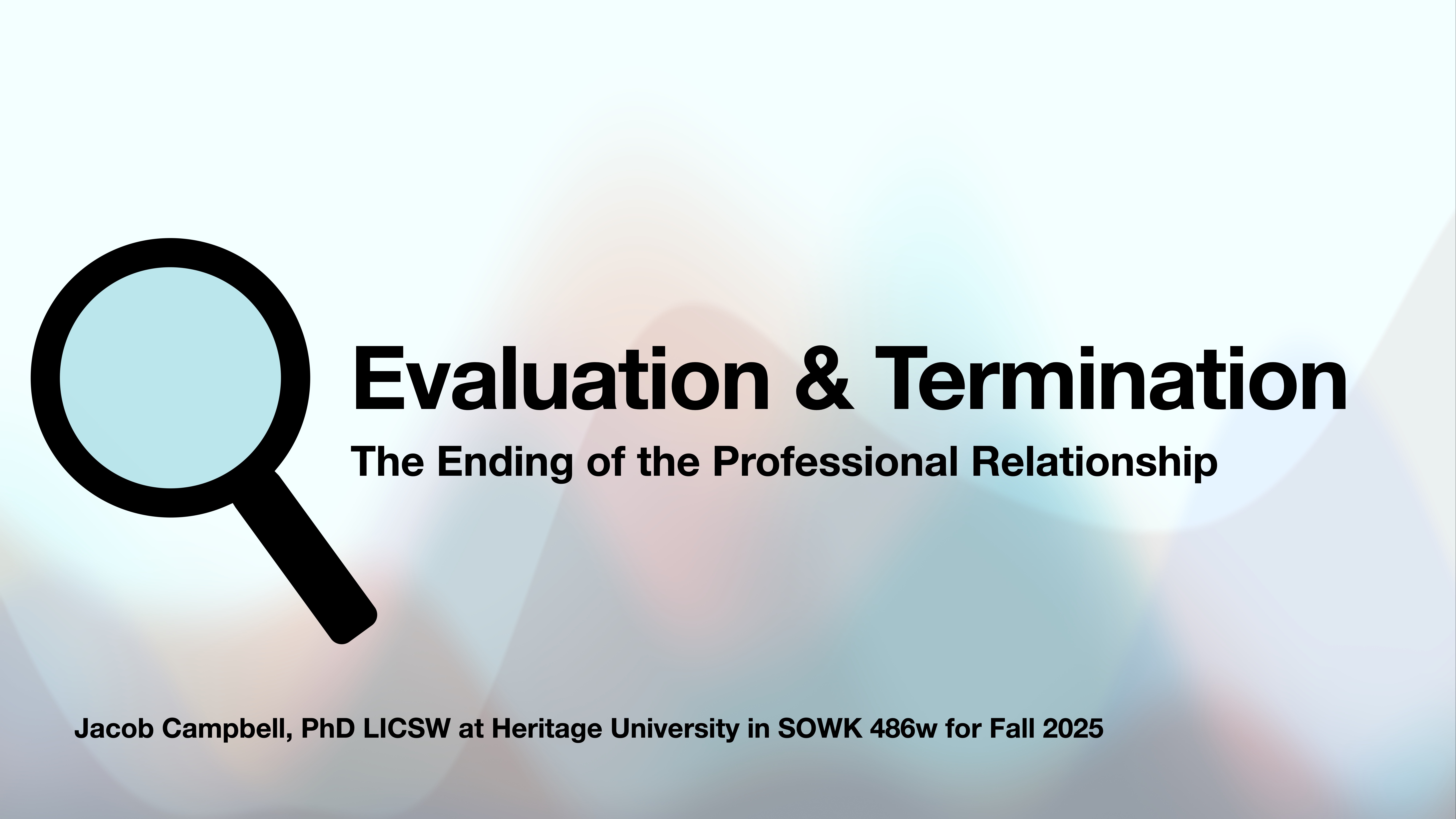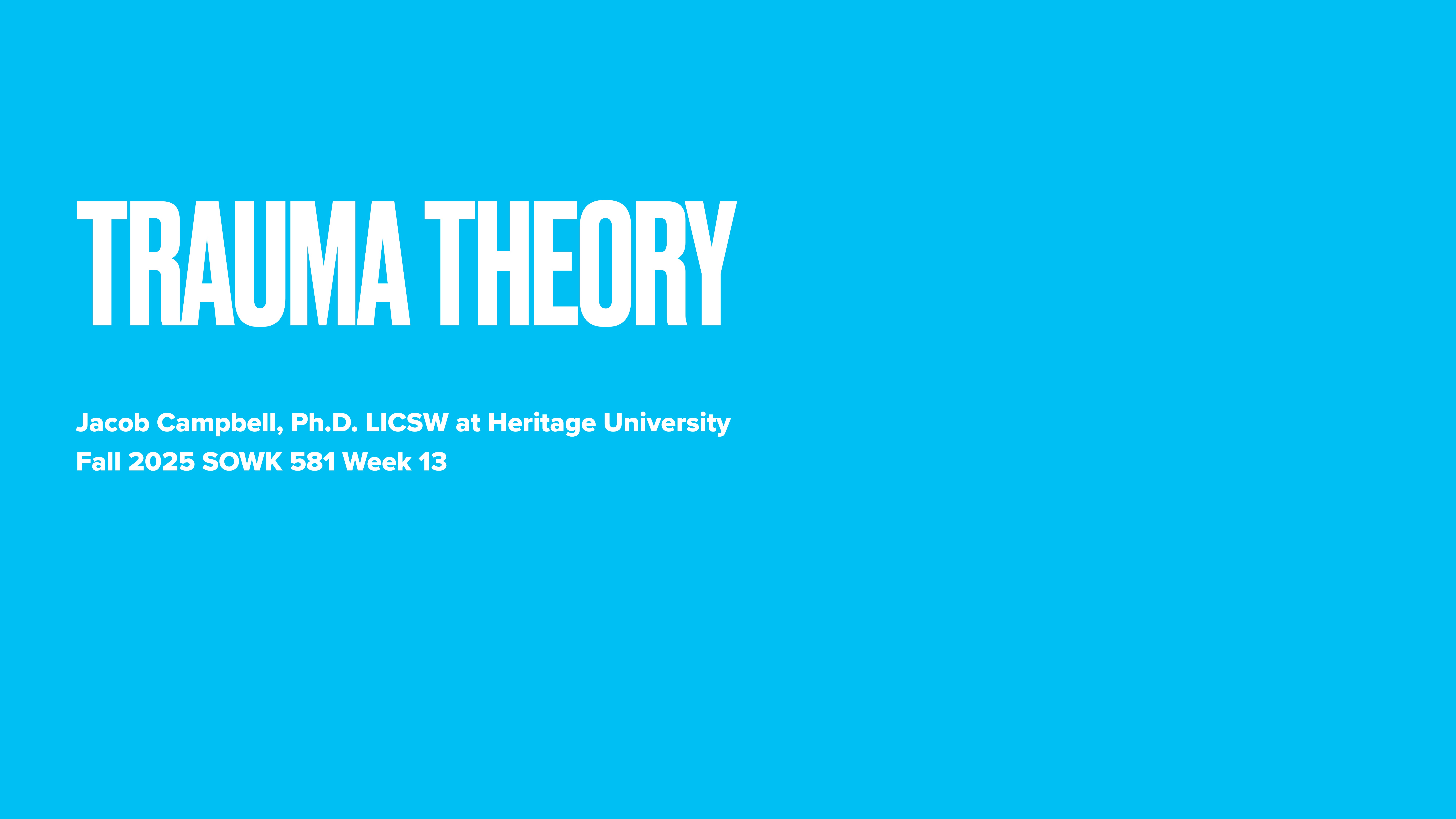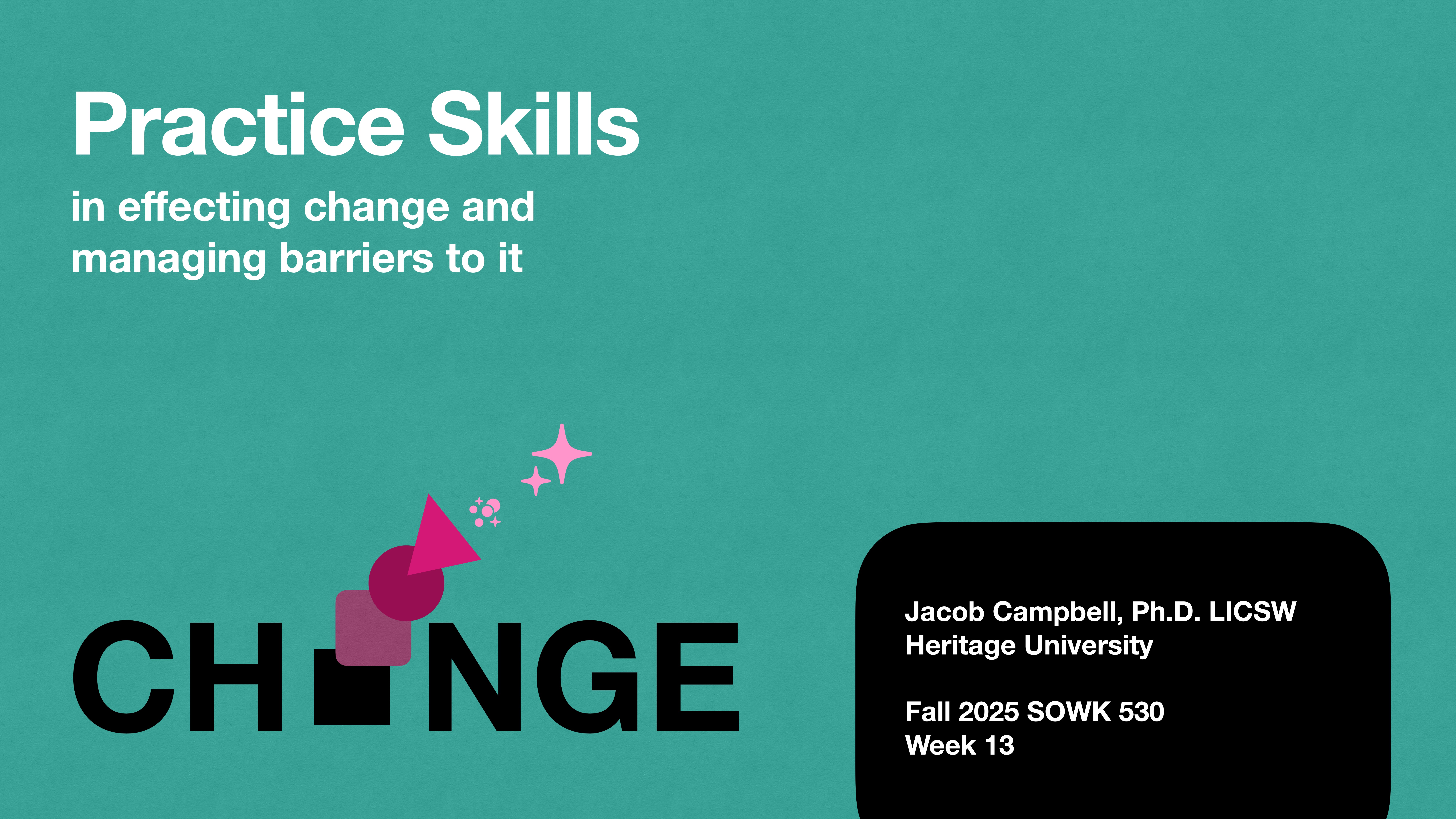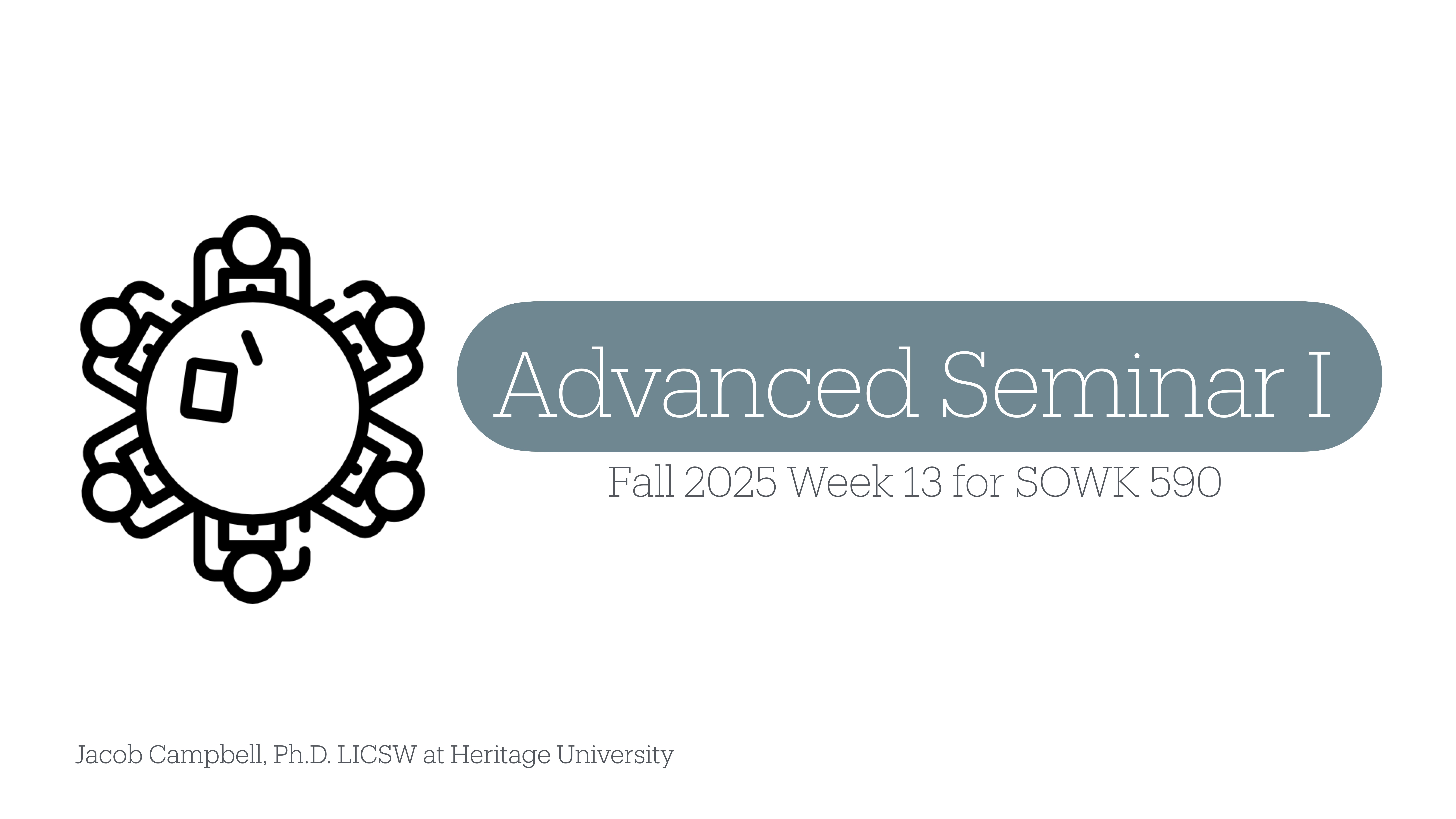
Jacob Campbell, Ph.D., LICSW
These are my presentations. My name is Jacob. I enjoy sharing ideas and developing helpers. I am an associate professor at Heritage University. I am sharing my presentations here to give ease of access for my students and so others can hopefully find useful information to learn and grow.
Recent Presentations

- Date:
- December 2025
You have made it to the end of this class, as week 15 is our final session. Evaluation and the ending of the helping relationship is a an essential aspect of social work and direct practice with clients. Students will read Hepworth et al. (2023) which reviews methods for evaluating case progress, describes various factors that affect the termination process, identifies relevant tasks for both social workers and clients, and discusses skills essential to effectively managing termination. I’ve shared a podcast episode about engaging in Feedback Informed Treatment, which uses evaluation throughout the helping process. During class will also be reflecting on professional resilience. The agenda for the class session includes:
- Evaluation
- The evaluation process
- Termination
- Professional resilience
Learning objectives this week include
- Explain the importance of evaluation in social work and identify the key barriers and facilitators of effective evaluation practices.
- Discuss the process and tasks involved in the termination phase of the helping process and strategies for sustaining client progress.
- Reflect on their personal and professional growth through self-evaluation activities.
- Identify strategies for building professional resilience and integrating self-care into ongoing social work practice.


